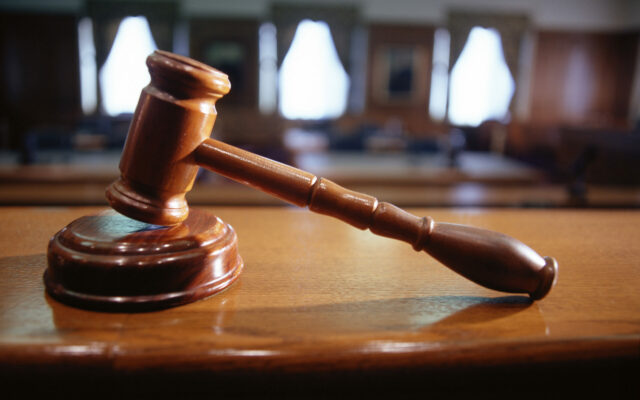Robby Mook says Clinton agreed to give Trump-Russia material to reporter

Robby Mook, the former campaign manager for Hillary Clinton, testified on Friday that the 2020 Democratic presidential nominee agreed to provide information about a link between her opponent Donald Trump and Russian Alfa Bank to a reporter, despite the fact that her campaign was not certain about the truth of the allegations.
During cross examination, Mook said the campaign was not fully confident in the Alfa Bank allegations and wanted to give them to a reporter so the reporter could “run it down further” and verify it.
Slate first published a story suggesting Alfa Bank, a Moscow-based financial institution, had a server that was “irregularly pinging” a server registered to the New York-based Trump Organization. The FBI investigated, and a report by the Justice Department inspector general said it concluded that there were no links between Alfa Bank and Trump.
Mook took the stand during the trial of Michael Sussmann who is charged in special counsel John Durham’s probe with lying to the FBI during the Trump-Russia investigation after he brought the FBI unverified evidence concerning Trump and Alfa Bank. The scope of the trial is narrow, focusing on whether or not Sussmann, whose law firm represented Clinton’s 2016 presidential campaign, was acting on behalf of a client.
Mook said the decision to release the Alfa allegations to a reporter was discussed with senior campaign officials, including senior policy adviser and now the White House national security adviser, Jake Sullivan; campaign chairman John Podesta and communications director Jennifer Palmieri.
Clinton was briefed about the decision to go to the press with the allegations in the fall of 2016, and according to Mook, “she thought we made the right decision.”
Mook testified he did not see the Alfa allegations as a “silver bullet” that would end the Trump campaign, referring to other information being published linking Trump to Russia.
Slate’s article on the purported link between Alfa Bank and Trump ran on Oct. 31, 2016, days before Election Day. When asked by prosecutor Andrew DeFilippis if he doubted the credibility of the allegations when the article ran, Mook said he was “not a cyber expert’ and thought that the article gave the claims more credibility.
“I’m sure you know reporters publish things that aren’t true,” DeFilippis pushed back.
Mook testified that going to the FBI did not seem like “an effective way” of getting the information to the public. He said the campaign didn’t trust the FBI, noting, “Two of probably the most damaging days to the campaign were caused by James Comey, not by Donald Trump.”
When asked if Clinton approved of Sussman going to the FBI, Mook said he was not aware, “I don’t know why she would have.”
Mook testified it was “malpractice” not to conduct opposition research, detailing that opposition research on Trump was very complicated. “He was incredibly litigious, so there was a lot of work to be done around different lawsuits that he filed or had been filed against him.” Sussmann’s law firm Perkins Coie played a role in this work, according to Mook.
In his second day of testimony, then-FBI general counsel James Baker told the jury that had he learned Sussman, whose law firm represented Clinton’s 2016 presidential campaign, had billed his time to the Clinton campaign for drafting papers presented to the FBI, he would “absolutely” have been concerned. This was tied to the central question of the trial — whether Sussmann had brought the information to investigators on his own and not on behalf of any legal client.
Had Baker known who Sussmann’s clients were, he said he would have feared the FBI was being pulled into a political ploy. “I would have had serious conversations with the leadership of the FBI about what if anything to do with this material and how to handle it.”
This is the first criminal trial stemming from the Durham investigation.



